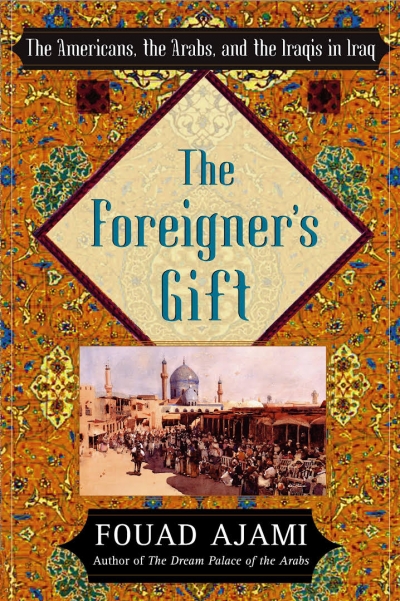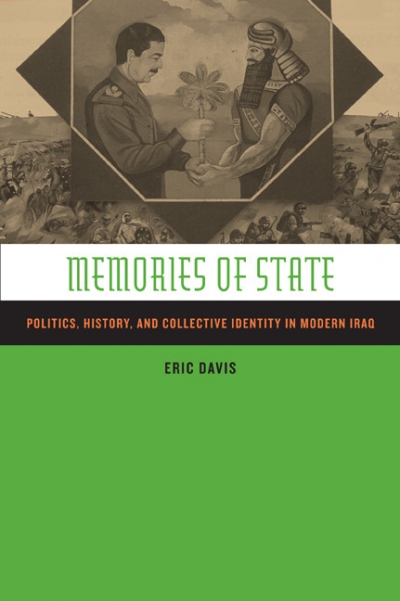



Iraq War veteran, Ross Caputi, writes about his thoughts on the role of veterans in the Occupy movement. The author is a Marine Corps veteran of the second siege of Fallujah and a member of March Forward! He is the founder of the Justice for Fallujah Project, which hosted various events during the second annual Remember Fallujah Week, November 16-19, 2011.
There were a slew of new revelations about the politics of the run-up to the US invasion of Iraq last month, when the Independent newspaper in Britain published details of documents recently obtained under the Freedom of Information.
There is certainly no doubt that Allawi’s success is something of a surprise in terms of the pre-election expectations...
The Obama administration is off to a sluggish start in foreign policy. The strategic toxins that have been lodged in the organs and tissues of the American body politic throughout the previous decades of successive administrations are pathological and substantial. When it comes to dealing with the Islamic movement and State, American politics are downright malignant and cancerous.
The problem with taking on the superpowers is that they never seem willing to admit that they are beaten, with the result that however successful the resistance to them, there is never an outright victory. Whenever the superpowers have projected their power and been met by determined local resistance, such as the Russians in Afghanistan and Chechnya, and the Americans in Vietnam, Iraq, Afghanistan and (indirectly) Palestine, the resistance faces the problem of actually sealing their victories in political terms.
Within a period of less than 30 years, Muslims have consigned one superpower—the Soviet Union—to the dustbin of history and are about to deliver the other—the US—to the same fate, together with its regional surrogate, Israel. The achievements against the US are particularly remarkable because the mujahideen have had little or no external help.
If anyone hoped that the security pact being negotiated between the US and Iraq was rising above the cycle of frustrations and false starts, then such fanciful thoughts can now be dismissed. On September 17 Iraqi prime minister Nuri al-Maliki told a group of Iraqi journalists that “there are very serious and dangerous obstacles facing the deal.
When US and Iraqi officials said on August 25 that they had agreed a text for the long-awaited treaty covering a full withdrawal of US troops by 2011, it should have been a major political story. The fact that it wasn’t reflects certain political realities that make the treaty virtually worthless.
The US is facing two deadlines in its dealings with the government in Iraq over the proposed “security treaty” by which it hopes to legitimise its continued occupation of the country. The first is the expiry of the UN mandate to remain in the country, which expires on December 31.
Ideological blinders often lead ideologues to stumble into serious blunders. That US president George W. Bush’s Iraq adventure has gone awry has escaped no one but the warmongering neo-conservative cabal dominating the Bush White House and the stalwart intellectuals who blithely rationalized the irrational war.
As Iraq has lurched from one crisis to another since the US invasion in 2003, one figure has become increasingly influential and even dominant in the country’s politics: young Shi’a leader Muqtada al-Sadr. KHALIL FADL profiles the man some regard as a future leader of the country.
After months of wishing away young anti-American Shi’a alim Sayyid Muqtada al-Sadr, Iraqi prime minister Nuri al-Maliki is trying to marginalize the Sadrist Current (al-Tayyar al-Sadri) by military means. But the Iraqi military offensive against the Sadrists, which was supposed to demonstrate the power of the central government, has actually laid bare its weaknesses and highlighted the political weight of Sadr’s movement. Operation Cavalry Charge (Sawlat al-Fursan), which began on March 25 in Basra and set off clashes with Mahdi Army fighters in several cities throughout southern Iraq and in the Baghdad itself, has also underlined the growing influence of Iran in post-Saddam Iraq.
When US president George W. Bush claimed last month that Iraq had been a victory for the US, hollow laughter echoed around the world. In this article, KHALIL FADL considers the real legacy of the Iraqwar, five years after the toppling of Saddam Hussein.
Sayyid Muqtada al-Sadr, the young, staunchly anti-American firebrand of the Iraqi Shi‘a community, has been largely absent from view for more than a year, but the tense anticipation with which decision-makers in Baghdad and Washington awaited his expected announcement at the end of February showed his continued importance to Iraq's political scene and its future.
Until the US started recruiting Sunni tribal forces to use against resistance forces in Iraq last year, it was widely thought that Sunni opinion in Iraq was firmly against the occupation and in support of the resistance. In fact the situation is far more complex. KHALIL FADL reports.
Memories of State: Politics, History and Collective Identity in Modern Iraq by Eric Davis. University of California Press, Berkeley, 2005. Pp: 385. Pbk: $27.50.
With reports of ebbing insurgent activity in the predominantly Sunni areas of western and north-central Iraq, there are also indications that armed resistance by Shi‘a groups is increasing. Attacks against US-led coalition troops in southern and south-central Iraq have been escalating over the past year to such an extent that top US military, Pentagon and state department officials argue that Shi‘a militias pose a long-term threat to coalition troops in Iraq.
A country that has been looking down the precipice of sectarian and ethnic strife for the past few years can certainly do without more violent intra-communal rivalry. Yet it was exactly such a dangerous scenario that seemed to be unfolding when 3,000 Iraqi soldiers and policemen, supported by military tanks, aircraft and hundreds of US and Polish troops, on November 17 launched Operation Lion's Leap in the Iraqi city of Diwaniyyah, the capital of the south-central province of Qadisiyyah. The assault was supposed to flush out armed militiamen loyal to Shi’a alim Sayyid Muqtada al-Sadr from the city, which has been the ground of a turf-war between Sadr's faction and its Shi’a archrival, the Supreme Iraqi Islamic Council (SIIC) led by Sayyid Abd al-Aziz al-Hakim.
On 20 March, 2003, the government of the USA sent its full range of armed forces intoIraq, obliterating its infrastructure and smashing its civil life like a lion devouring a rabbit. Since then almost one million men, women and children have been killed, and uncounted others have been wounded. No one wants to say so, but consequently the Iraqi people are teetering on the brink.
The already complicated and volatile situation in Iraq may be about to deteriorate further. After months of escalating tensions along the Iraq-Turkey border, in October 17 the Turkish parliament passed a motion submitted by the government of prime minister Recep Tayyip Erdogan that permits military strikes on Iraq. The motion, the first of its kind since Turkey’s invasion of northern Cyprus in 1974, was approved by an overwhelming majority of 507 in the 550-member Turkish grand national assembly.


